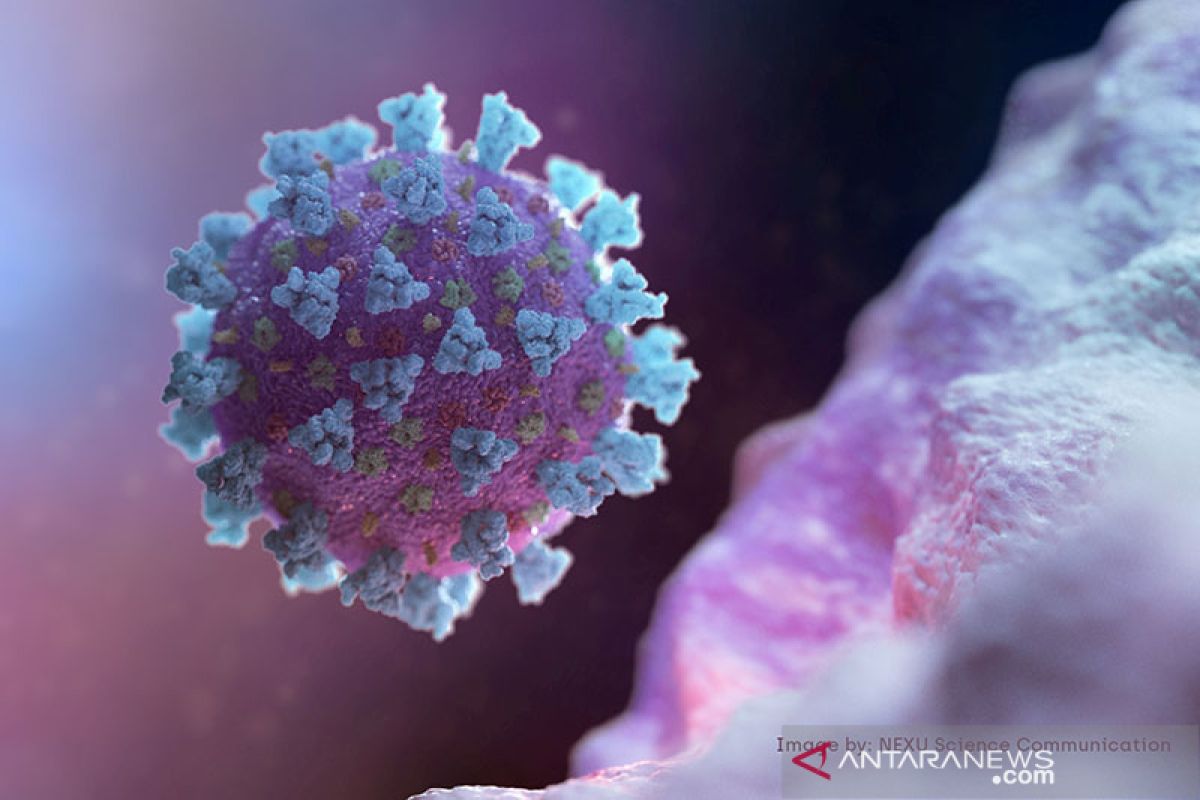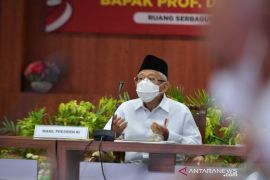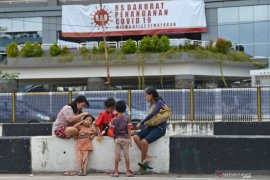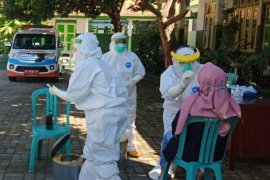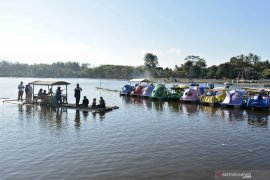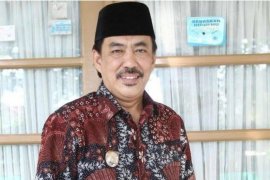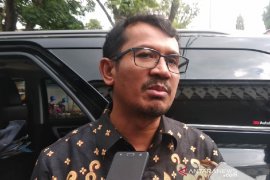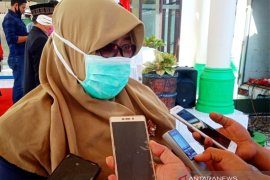It is easy to move into … perspectives in which there tends to be discrimination; there tends to be violation of human rights; there tends to be stigma on innocent people just because of their ethnicityJakarta (ANTARA) - As the world reels from impacts of the coronavirus outbreak, not only health and economy should be highlighted but also equally critical is how the virus has triggered other issues, such as discrimination and racism.
In early February, a Facebook video that went viral shows a stirring response to the recent outbreak of coronavirus-related racism spreading across Europe and North America.
In the video, Massimiliano Martigli Jiang, a Chinese-Italian descendant stands in the middle of a busy square in Florence, wearing a surgical mask and a blindfold. A sign next to him reads, in Italian, Chinese and English,
“I am not a virus. I am a human. Eradicate the prejudice”.
Some people pose for pictures or poke fun. However, most choose to remove his mask and blindfold and hug him.
A group called the Italian-Chinese Youth Union created the video. Their original Facebook post reads,
“The virus that really scares us right now is not the coronavirus, but the prejudice that is in the air. Remove the coronavirus but not the people!”
However, around the world, the anti-China sentiment is rising. Some restaurants in Vietnam, Japan, and Italy are refusing entry to Chinese.
A Danish newspaper, Jyllands-Posten, courted controversy by publishing a cartoon version of the Chinese flag with viruses in place of the five stars.
On Feb 3, The Wall Street Journal ran an op-ed by Walter Russel Mead titled “China is the Real Sick Man of Asia” with the subtitle “Its financial markets may be even more dangerous than its wildlife markets”.
UN Secretary General Antonio Guterres has voiced concern over the possibility of discrimination against certain groups of people due to the novel coronavirus epidemic.
“It is easy to move into … perspectives in which there tends to be discrimination; there tends to be violation of human rights; there tends to be stigma on innocent people just because of their ethnicity,” Guterres had stated during a press conference on Feb 3.
He appealed for “a strong feeling of international solidarity, a strong feeling of support to China in these difficult circumstances but also to other countries that might be impacted” and “a strong concern to avoid the stigmatization of people that are innocent and that might be victims of that situation”.
Although the message is clear, fighting the stigma and discrimination related to coronavirus outbreak is not easy.
The fact that the virus has infected more than 79 thousand people and killed more than 2,800 people only in mainland China cannot just be erased from the mind.
Recently, the virus with pneumonia-like symptoms has also spread to Europe and the Middle East, after infecting people in several Asian countries---with South Korea having the most affected citizens after China.
Several countries have blocked access to and from China as a preventative measure against this virus. Some others, including Indonesia, have also evacuated their citizens from China.
Apparently, the problem did not stop there. When the Indonesian government designated Natuna Island as the quarantine location of 238 Indonesian citizens from Wuhan City, which was the epicenter of the virus, local residents refused their arrival.
Natuna residents held demonstrations over fear of contracting the virus, which is said to originate from wild animals that are illegally traded in China.
The rejection was due to an incomplete notification from the government. Both the central and regional governments also admit that there was rushed coordination on determining quarantine locations that raised concern among the people.
However, two weeks have gone by since the quarantine was conducted on February 2, and 238 people were confirmed to have completed the quarantine period and declared healthy. The Natuna residents gleefully bid farewell before returning to their respective areas of origin.
Education and information sharing by the government over coronavirus has proven successful in eliminating the concern of Natuna residents over the possibility of contracting it.
One resident also claimed to be "ready to welcome other Indonesians to be quarantined in Natuna" when interviewed by a television station.
This proper education and information distribution might also be used to fight discrimination and racism linked to the coronavirus outbreaks.
As Zero Discrimination Day on March 1 draws close, it should serve as a reminder to us all that even in difficult situations, such as this outbreak, promoting diversity and recognizing that everyone counts is a principle that must be upheld by all.
Since March 1, 2014, organizations, such as the UN, have been actively promoting the day with various activities to celebrate everyone’s right to lead a full life with dignity regardless of age, gender, sexuality, nationality, ethnicity, skin color, height, weight, profession, education, and beliefs.
The symbol for Zero Discrimination Day is the butterfly, widely used by people to share their stories and photos as a way to end discrimination and work towards positive transformation.
Hence, instead of triggering anxiety and excessive phobias against the coronavirus, it would be better if we open our eyes and hearts to learn to empathize with victims and survivors as well as not to create sentiments against any race.
Related news: Indonesian ship carrying 188 World Dream workers in Java Sea
Related news: Diamond Princess' Indonesian crew to be airlifted: Minister
EDITED BY INE
Editor: Fardah Assegaf
Copyright © ANTARA 2020
